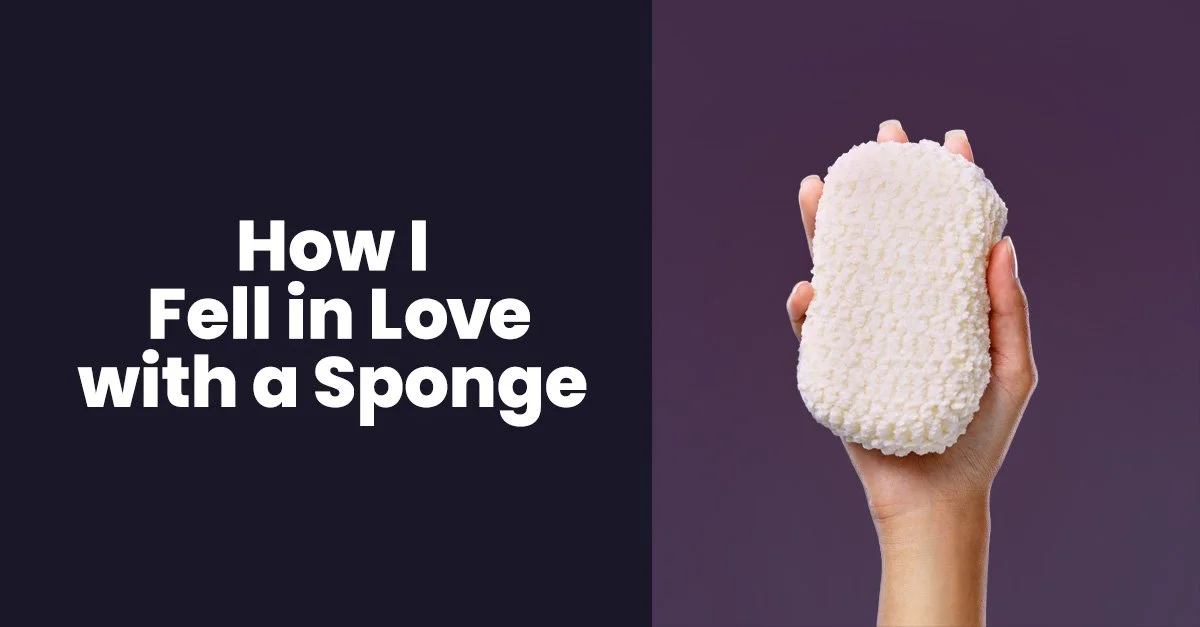How I Fell In Love With a Sponge
The Secret To Bringing Your Products To Life
Several years ago, my husband bought me a Scrub Daddy sponge as a gift. At first I thought: Wow. Really? But in time, I realized the beauty of it. As a self-proclaimed home chef, it was the perfect tool for the times when I left the sauce on too long or let cheese melt on the pan, etc. You see, that sponge taught me valuable lessons about durability. About quality. About working smarter, not harder.
Day in, day out…that sponge was there for me. Cleaning messes that would’ve seemed daunting before. And always with that bright, wide smile on his face. I wasn’t afraid of making messes, because I knew I could count on him to be there. He empowered me. In a sense, the Scrub Daddy became like a Scrub Father. (Sorry, couldn’t resist making that joke.)
But seriously, I’d find myself standing over a dirty stove telling him, “we’ll get through this…don’t worry.” And in the midst of a fierce battle with stains and stuck-on food, I could swear I saw him making the same faces of disgust as me. It made me smile.
Sadly, when his life was coming to an end, I tried to do anything I could to extend our time together. I even tried cleaning the cleaning product. But his time had come, and I had to say goodbye.
Then I bought a new one.
I tell this story not to be silly. Nor to endorse Scrub Daddy (well, not officially anyway). I share this to illustrate the concept of East-Asian Animism.
What Is East-Asian Animism?
It’s the worldview that all things, living or not, possess a spirit or inner life.
At the time, I may have felt silly for personifying my sponge, as well as several other items I still own. But after learning about this unique, ancient philosophy –– I felt deeply connected to it. And I knew I wasn’t alone.
We all have items in our home that we have a tendency to give life to and create an emotional connection with. People may accuse you of being “sentimental” or even “materialistic,” but the truth is: You care about your stuff. If contributing humanistic emotions to inanimate objects is what your brain has to do to take care of your valuable items –– we’re all for it.
From subtle product design cues that implement human-like qualities to adding in “care manuals,” brands are slowly starting to cater to their consumer’s growing animist-like philosophies.
What Does It Mean To You?
According to Felicia Schwartz, founder at China Insight, “As Western consumers adopt practices that reflect East Asian animism, we’re seeing not a fad, but a worldview shift. Objects are becoming participants in the household, the workspace, and the self. Understanding this subtle transformation opens the door to richer cultural insight—and more resonant brand strategies.”
How Can We Help?
As a marketing agency who specializes in multicultural audiences –– with vast expertise in East Asian culture –– we’re confident we can help your brand or product embody a spirit that connects with your audience. Need help with a new project or want to bounce around some ideas? Drop us a line here and let’s get the conversation started.
Check out how we tap into deep cultural insights to connect brands with new audiences here.

